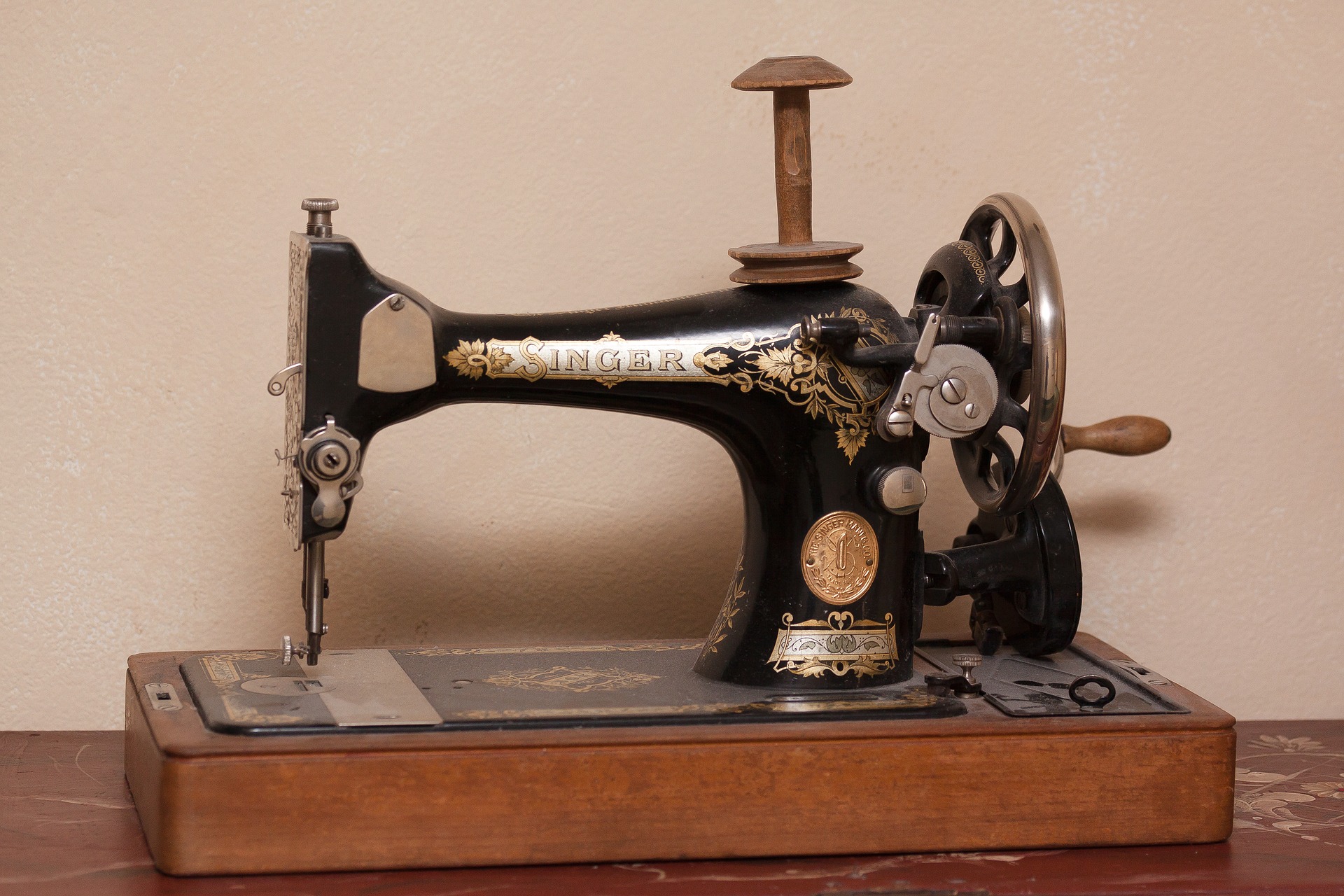Grandma’s House
My grandmother’s black Singer sewing machine was set up in what we affectionately called “the little room”. As a young girl, I loved to hear the whir of the machine as Grandma wound the bobbins, readying them for her next projects. Grandma was a very practical woman. Every yard of material was used. There was no waste. I had a skirt the same material as a bedspread. A glass jar served as a button repository. All extra buttons went into the jar. If an old piece of clothing was tossed out, the buttons came off first and were deposited in the jar. If a garment was missing a button, one could surely find a suitable match in the button jar.
Grandma Rosie was not only a seamstress but a great cook and baker. Her claim to fame was fried chicken. She would have two frying pans going simultaneously on the old yellow Chambers stove top. After the pieces were cooked to perfection, she would drop them into a brown paper Waldbaum’s bag, toss them to absorb some of the oil and close up the bag to keep the chicken warm. Fried chicken, paprikash potatoes and steamed green in the pressure cooker; potatoes from the old country served with a southern American twist. True acculturation.
My grandparents were immigrants who wanted very much to fit into American culture while still maintaining Jewish tradition. Keeping a kosher home, sanctifying the Sabbath, belonging to a shul were all important to my family. And like most Jewish mothers Grandma Rosie only wanted to see her children and grandchildren married with children.
In the hierarchy of importance, G-d was number one. Below G-d were doctors and right below that was a husband. Didn’t really matter to her what kind of husband, but any basic good Jewish boy would fit the bill. My sister came home from a date one time and was grilled by Grandma. “So, vat kind a fella vas he?” she asked in her thick European accent. “A little short”, my sister replied. “Short, tall, vats a difference. Ven de laying down de all da same”, answered Grandma. Dating advice by Grandma Rosie!
My grandparents got lucky. They were very devoted to each other. Each one knew their role in life. Grandpa drove a truck for Breakstone cheese. Grandma raised the children and took care of the house. Life was simple and they were content. Grandma was the happiest when she could take care of someone and Grandpa loved to be cared for. Grandma had dinner on the table every night for Grandpa Moishe. Grandpa’s pills were dispensed each morning. But after multiple heart attacks, Grandpa’s heart gave out and he passed away at the age of 72.
I am not exactly sure how it happened but shortly after Grandpa passed away, I was sent to live with Grandma. I think I must have gone to spend the night at first. One night turned into two. Before I knew, I was living at Grandma’s. I remember calling my mom one night asking if I could come home. I think she was making meatballs and spaghetti and I wanted dinner at home. Looking out the window, I waited for her to drive up the street. But she didn’t come. I didn’t want to make Grandma feel badly so I didn’t tell her I wanted to go home. I was a people pleaser and did not want to disappoint anyone.
We only lived a mile or two away but to a ten-year-old, it seemed a lot further. I loved Grandma. She was warm and kind hearted. She would do anything for me. But after Grandpa died, she cried a lot. She was mourning the loss of her husband. I could keep her company at night but my presence did not ease her grief. In Jewish tradition, when one loses a parent they are in mourning for a full year. This includes customs like not listening to music or going to festive occasions.
When one loses a spouse, sibling or child the mourning period is 30 days. Grandma did not allow music in the house for a full year. Maybe this stringency was out of ignorance of the law; maybe out of devotion. But to me, it meant a very quiet house. Living with my Grandma that year was hard. I was a child in an adult world witnessing grief and loss. I don’t think my mother ever thought about the emotional toll this would take and how it would impact me. This was my first lesson in family responsibility. Sometimes we sacrifice for family even if it is the hard thing to do. We do it because it is the right thing to do.
The following school year my parents, sister and brother moved into the two-family house with Grandma. My mom gave birth to another boy who was named for my grandfather. Grandma affectionately called him “Moishele” just like his namesake. And that brought her some comfort.

